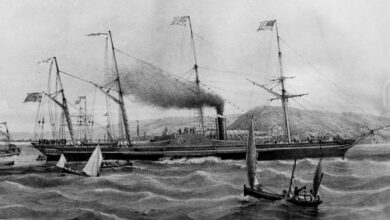Podcast: Play in new window | Download
The motor car, also known as the automobile or simply car, is a ubiquitous part of modern life. It has revolutionized transportation and changed the way we live and work.
The earliest developments in the motor car can be traced back to the late 18th century, with the invention of the steam engine. The first steam-powered car was built in 1769 by Nicolas-Joseph Cugnot, a French engineer. However, it wasn’t until the mid-19th century that the first gasoline-powered cars began to appear.
In 1886, Karl Benz, a German engineer, built the first true automobile, which he called the Benz Patent Motorwagen. This three-wheeled vehicle was powered by a gasoline engine and could reach a top speed of 10 miles per hour. Benz’s invention was the first step in the evolution of the modern motor car.
The early 20th century saw the motor car become more accessible and popular, as mass production techniques were developed. In 1908, Henry Ford introduced the Model T, which was the first car to be produced on an assembly line. The Model T was affordable and reliable, and it quickly became the most popular car in America.
During this time, cars were primarily used by the wealthy and were seen as a symbol of status and luxury. However, as they became more affordable, cars began to change the way people lived and worked. They allowed people to travel further and faster, opening up new opportunities for work and leisure.
The mid-20th century saw a boom in car ownership and production. In the 1950s and 60s, cars became more powerful, faster, and more stylish. This was the era of the muscle car, with iconic vehicles such as the Ford Mustang and Chevrolet Camaro capturing the public imagination.
In the 1970s, the oil crisis and concerns over environmental pollution led to a shift towards smaller, more fuel-efficient cars. Japanese automakers such as Toyota and Honda began to gain a foothold in the American market, and European automakers such as Volkswagen and Fiat also became popular.
Today, the motor car continues to evolve and adapt to changing technologies and societal trends. Electric cars and hybrids have become increasingly popular, as people become more conscious of their environmental impact. Autonomous cars, which are capable of driving themselves, are also being developed, with the potential to revolutionize transportation even further.
In conclusion, the motor car has come a long way since its early beginnings in the late 18th century. From steam-powered carriages to electric vehicles, the motor car has evolved and adapted to changing technologies and societal trends. It has changed the way we live and work, and it continues to play a central role in modern life. The history of the motor car is a fascinating one, and it will be interesting to see how it continues to evolve in the years to come.
Credits
Photo: Ford Mustang. Photo by: Lance Asper on Unsplash
Podcast: Play in new window | Download





